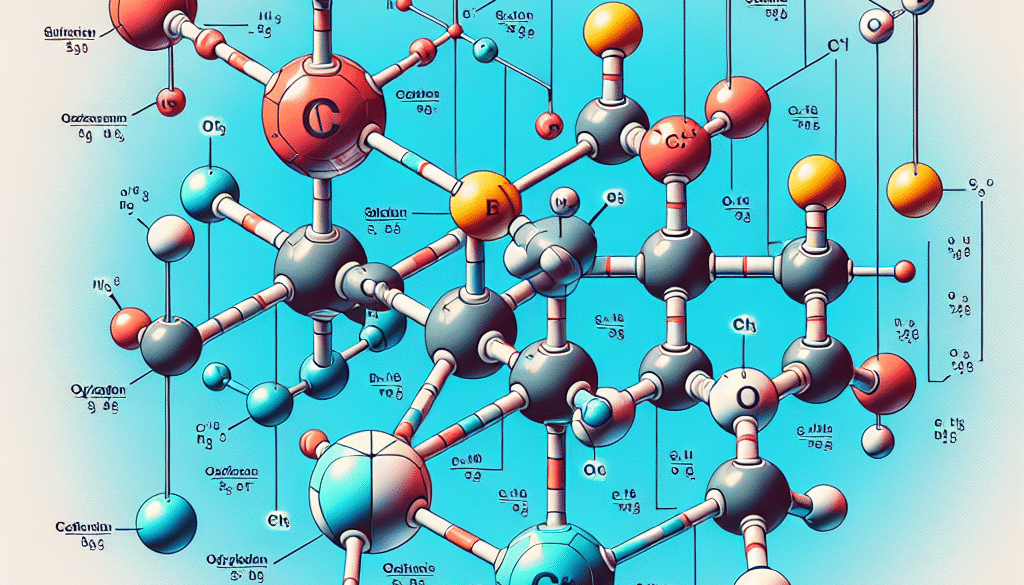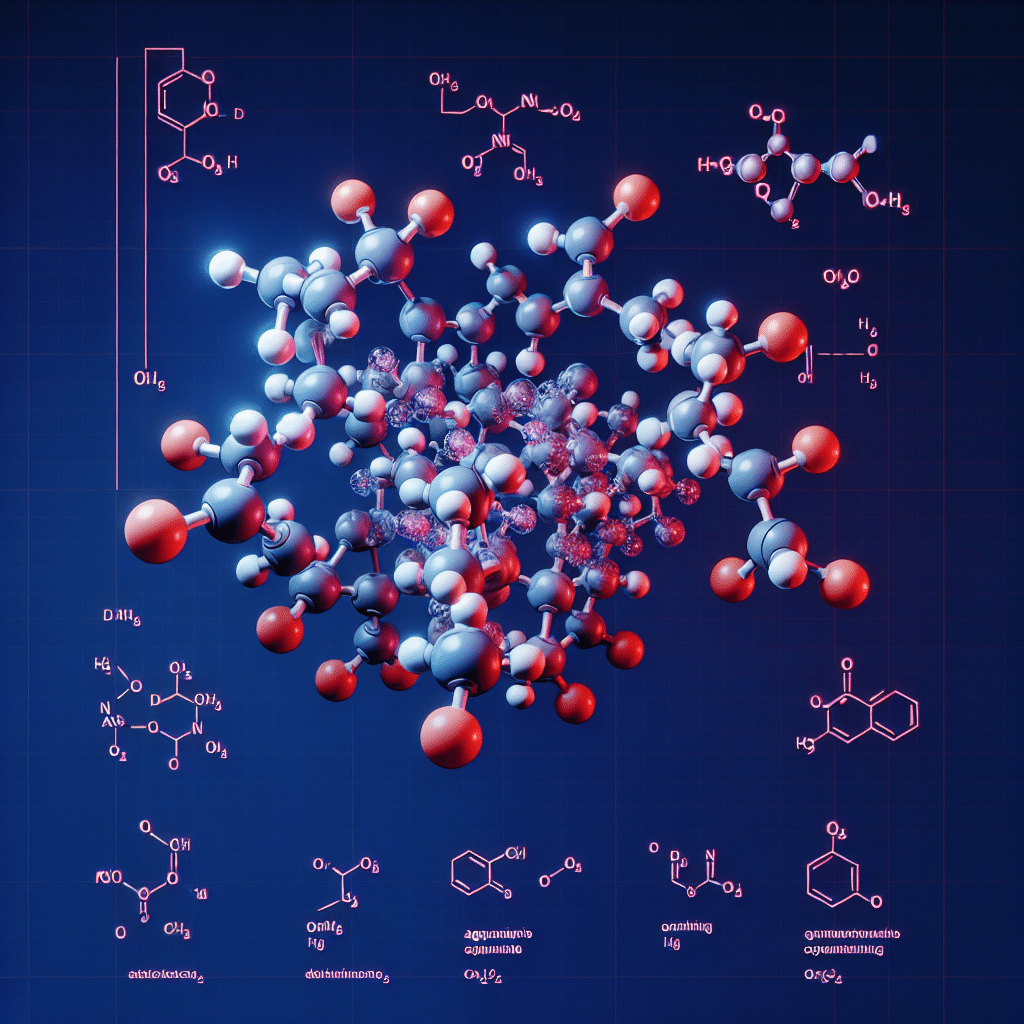Agmatine Sulfate Formula: Understanding the Composition
-
Table of Contents
- Agmatine Sulfate Formula: Delving into Its Chemical Structure
- Chemical Composition of Agmatine Sulfate
- Understanding Agmatine Sulfate’s Mechanism of Action
- Potential Health Benefits and Applications
- Case Studies and Research Findings
- Considerations and Safety Profile
- Conclusion: Key Takeaways on Agmatine Sulfate
- Discover ETchem’s Protein Products
Agmatine Sulfate Formula: Delving into Its Chemical Structure
Agmatine sulfate is a compound that has garnered significant attention in the fields of neuroscience, pharmacology, and sports nutrition. Understanding its composition is crucial for researchers, healthcare professionals, and fitness enthusiasts alike. This article will explore the chemical structure of agmatine sulfate, its potential benefits, and applications, supported by relevant examples, case studies, and statistics.
Chemical Composition of Agmatine Sulfate
Agmatine sulfate is a biogenic amine derived from the amino acid L-arginine through decarboxylation, a process where the carboxylic acid group is removed. The chemical formula for agmatine sulfate is C5H14N4·H2SO4, indicating that it consists of an agmatine molecule paired with a sulfate ion.
- Agmatine (C5H14N4): The core structure of agmatine contains a guanidine group, similar to arginine, but with the absence of the carboxylic acid group.
- Sulfate (SO42-): The sulfate ion is a salt that stabilizes agmatine, enhancing its solubility and bioavailability.
The combination of these two components forms agmatine sulfate, a stable salt that is commonly used in dietary supplements and research.
Understanding Agmatine Sulfate’s Mechanism of Action
Agmatine sulfate operates through various mechanisms within the body. It is known to interact with several receptor systems, including:
- Imidazoline receptors
- Alpha-2 adrenergic receptors
- N-Methyl-D-aspartate (NMDA) receptors
- Nitric oxide (NO) synthesis modulation
These interactions contribute to agmatine sulfate’s potential effects on cardiovascular health, pain relief, neuroprotection, and cognitive functions.
Potential Health Benefits and Applications
Agmatine sulfate’s diverse mechanisms of action suggest a wide range of potential health benefits:
- Neuroprotection: Agmatine has shown promise in protecting the brain from toxins and strokes, potentially aiding in the treatment of neurodegenerative diseases.
- Cardiovascular Health: By modulating NO synthesis, agmatine sulfate may improve blood flow and reduce blood pressure.
- Pain Relief: Its ability to modulate NMDA receptors may help in managing pain, particularly neuropathic pain.
- Mood Enhancement: Agmatine may influence neurotransmitters involved in mood regulation, suggesting potential benefits for mental health.
- Sports Performance: Some evidence suggests that agmatine sulfate can support muscle pumps, nutrient delivery, and recovery in athletes.
These applications make agmatine sulfate a subject of interest for further research and development in various health-related fields.
Case Studies and Research Findings
Several studies have investigated the effects of agmatine sulfate. For instance, a study published in the “Journal of Pharmacology and Experimental Therapeutics” found that agmatine could protect against strokes in animal models. Another study in “Pain” highlighted agmatine’s potential in reducing neuropathic pain. These findings, among others, underscore the therapeutic potential of agmatine sulfate.
Considerations and Safety Profile
While agmatine sulfate is generally considered safe, it is essential to understand its interactions and possible side effects. It should be used with caution in individuals with low blood pressure or those taking medications that affect blood pressure. As with any supplement, it is advisable to consult with a healthcare professional before starting agmatine sulfate.
Conclusion: Key Takeaways on Agmatine Sulfate
In summary, agmatine sulfate is a compound with a unique chemical structure and a variety of potential health benefits. Its interactions with multiple receptor systems make it a versatile molecule of interest in neuroscience, pharmacology, and sports nutrition. While research is ongoing, the current evidence suggests that agmatine sulfate holds promise for various therapeutic applications.
Discover ETchem’s Protein Products
If you’re interested in high-quality protein products, consider exploring ETchem’s offerings. Their extensive range of collagens, including marine, fish, bovine, and chicken collagen, caters to diverse industries and applications. ETchem’s commitment to quality and customer satisfaction makes them a top choice for your protein needs.
About ETChem:
ETChem, a reputable Chinese Collagen factory manufacturer and supplier, is renowned for producing, stocking, exporting, and delivering the highest quality collagens. They include marine collagen, fish collagen, bovine collagen, chicken collagen, type I collagen, type II collagen and type III collagen etc. Their offerings, characterized by a neutral taste, instant solubility attributes, cater to a diverse range of industries. They serve nutraceutical, pharmaceutical, cosmeceutical, veterinary, as well as food and beverage finished product distributors, traders, and manufacturers across Europe, USA, Canada, Australia, Thailand, Japan, Korea, Brazil, and Chile, among others.
ETChem specialization includes exporting and delivering tailor-made collagen powder and finished collagen nutritional supplements. Their extensive product range covers sectors like Food and Beverage, Sports Nutrition, Weight Management, Dietary Supplements, Health and Wellness Products, ensuring comprehensive solutions to meet all your protein needs.
As a trusted company by leading global food and beverage brands and Fortune 500 companies, ETChem reinforces China’s reputation in the global arena. For more information or to sample their products, please contact them and email karen(at)et-chem.com today.





